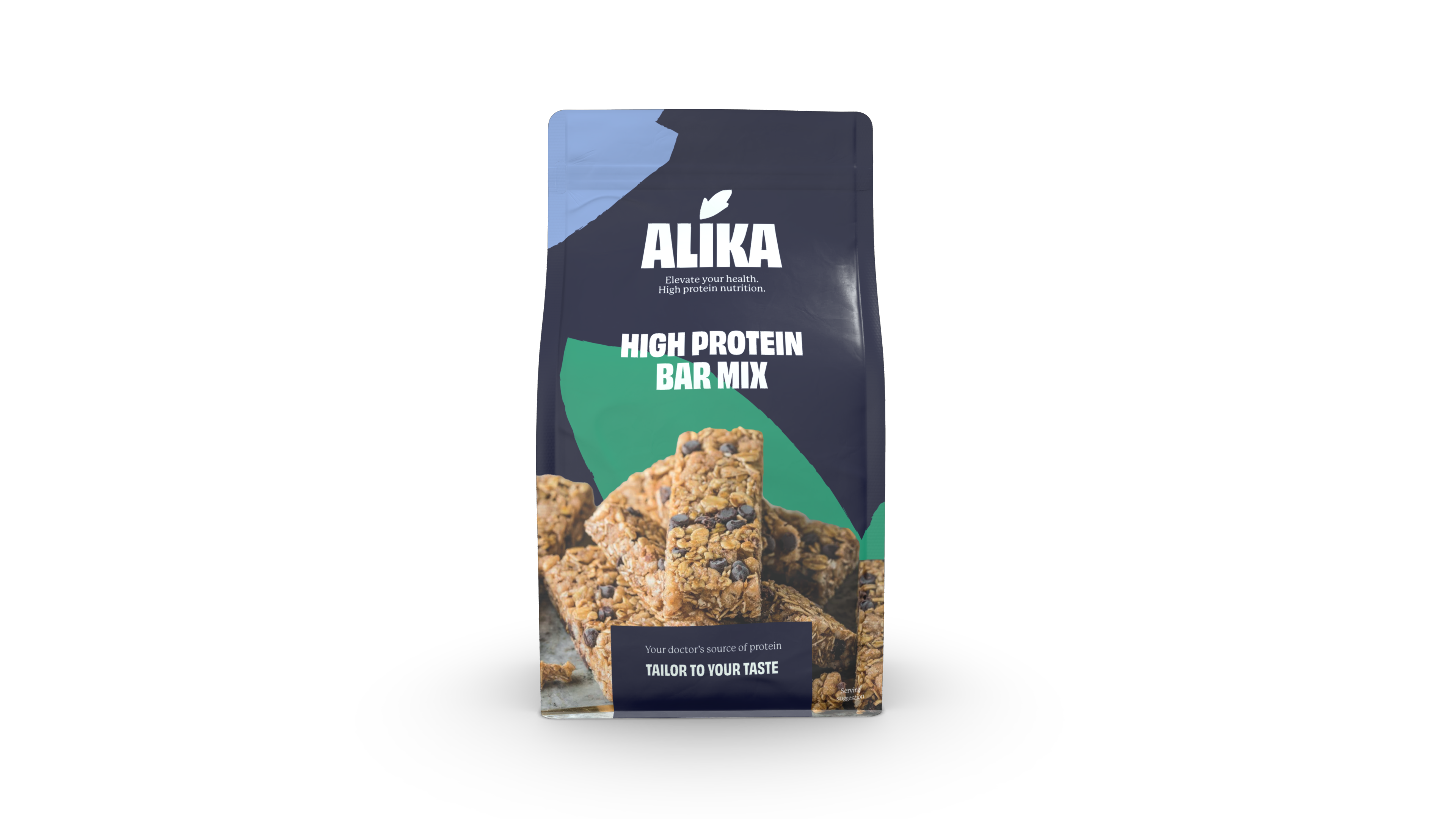



Protein Bar mix
Make your own healthy protein bars without baking
With this versatile protein mix you can easily create your own nutritious snack. Add your favorite ingredients, such as nuts, seeds, dried fruit or dark chocolate and determine the taste and texture yourself. Rich in protein and free from unnecessary additives. Perfect as a snack, pre/post-workout bar.
Healthy, tasty and completely to your liking!
The Protein bar mix is a cold preparation . So you don't have to bake it but just mix it with your favorite ingredients. The bars are ready to use after a few hours in the refrigerator.
See How to make a protein bar video

Protein Bar mix
Product details
Composition
Nutritional values
Preparation
Amino acids
Usage advice
High-quality proteins are at the core of our brand.
Amino acids
Proteins, especially their building blocks, the amino acids, are essential for the maintenance and optimal functioning of our body.
Just as there is a recommended daily amount of specific vitamins, proteins mainly concern the intake of 9 amino acids, namely those that our body cannot produce itself but must obtain from food, the so-called 'essential' amino acids.
These essential amino acids are abundant in all Alika Nutrition products.


What are proteins?
Proteins are a chain of amino acids linked together.
20 different types of amino acids are responsible for the production of proteins: 9 of them are called "essential", meaning that they are not produced by our body, but that we must ingest them through food.
Amino acids are needed everywhere in the body, they are the building blocks of body tissue such as skeleton, muscles (so to counteract our age-related muscle breakdown) but also of hormones, skin, hair... in short, we need them! This only becomes more important in case of malnutrition, aging or illness.
FAQs
Check out our FAQs page for more info.
Why are proteins important?
Proteins are important for maintaining or improving the functional capacity of our body, especially our muscle mass. For example, to combat age-related muscle loss (sarcopenia), an optimal daily protein intake is recommended.
Why Alika Nutrition products?
Alika Nutrition's protein-rich products are free of added sugars, artificial sweeteners, and artificial colors. They have a high protein content, both quantitatively and qualitatively, and are low in saturated fat!
For flavorings, we use only pure vanilla, cocoa, or raspberry. No artificial flavors, just real natural flavors.
What is the value of certain protein-rich products over a natural source?
Traditional food ('real food') is still the basis for the necessary daily proteins, preferably through three meals.
Due to various circumstances, this is practically not always possible, e.g., eating habits, insufficient knowledge of nutritional values, lack of time, loss of appetite, chewing problems, illness.
A high-quality protein source such as a shake, bar, protein-rich pancake or waffle can offer a solution to ingest 30g of protein with a sufficient amount of leucine.
What is the recommended frequency and amount of protein intake?
It's important to realize that the daily amount of protein to be consumed isn't really a percentage of calorie intake, but rather an absolute number. This depends on your individual situation and activity level.
For example, for an active adult with normal kidney function, this is between 1.5 and 2g per kg body weight per day, based on literature data.
If you have any questions, you are always welcome to contact us. We'll get back to you as soon as possible, within 24 hours on weekdays.
-
Shipping Information
Use this text to answer questions in as much detail as possible for your customers.
-
Customer Support
Use this text to answer questions in as much detail as possible for your customers.
-
FAQ's
Use this text to answer questions in as much detail as possible for your customers.
-
Contact Us
Use this text to answer questions in as much detail as possible for your customers.
